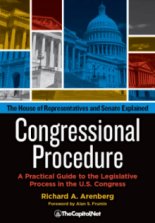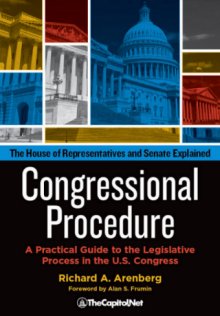Point of Order (CongressionalGlossary.com)
From the Congressional Glossary – Including Legislative and Budget Terms Point of Order photo credit: lightsinmotion An objection raised by a member, in committee or on the floor, that the chamber is departing from rules governing its conduct of business. The objector cites the rule violated, and the chair sustains the objection if correctly made. … Read more






